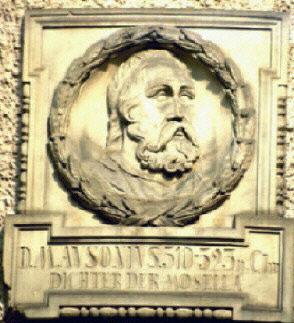Late Latin
Late Latin refers to the Latin language stages used from the 3rd century AD until the transition to the Medieval Latin of the 9th century. It is characterized by both linguistic evolution and the influence of other languages, particularly Greek, due to the changing political, social, and religious landscape of the Roman Empire. Late Latin is not a uniform linguistic entity but varies significantly over time and geography, reflecting the diverse nature of the Late Antique world.
Characteristics
Late Latin exhibits several characteristics that distinguish it from Classical Latin, the form of Latin used in literature and formal writing in the earlier Roman Republic and Empire. These include:
- Vocabulary Expansion: Introduction of new words, including borrowings from Greek and other languages, and the creation of new terms to reflect Christian religious practices and the administrative needs of the Empire.
- Syntax Simplification: The syntax of Late Latin becomes less rigid than that of Classical Latin, with a tendency towards a more analytical structure that prefigures the developments in Romance languages.
- Morphological Changes: There are changes in verb conjugations, noun declensions, and the use of prepositions, making the language less synthetic.
- Spelling and Pronunciation Variations: These reflect both regional differences and the evolution of the spoken language, which would eventually lead to the formation of the Romance languages.
Historical Context
Late Latin developed in a period of significant transformation for the Roman Empire, which included the spread of Christianity, administrative reforms, and the eventual division of the Empire into Western and Eastern halves. The language served as a unifying cultural force across the Empire, even as it adapted to new influences and the needs of its speakers.
Late Latin Literature
Late Latin literature includes a wide range of texts, such as Christian theological writings, legal texts, historical works, and poetry. Notable authors include Saint Augustine, Jerome, and Boethius, whose works were influential in the development of Western philosophy, theology, and science. This period also saw the translation of the Bible into Latin by Jerome, known as the Vulgate, which became the standard Christian scriptural text throughout the Middle Ages.
Influence on Medieval Latin and Romance Languages
Late Latin forms a bridge between Classical Latin and Medieval Latin, with its changes in grammar, vocabulary, and pronunciation laying the groundwork for the development of the Romance languages, such as Italian, French, Spanish, Portuguese, and Romanian. The transition from Late Latin to Medieval Latin is marked not by a clear-cut date but by a gradual evolution in different regions of the former Roman Empire.
Conclusion
Late Latin is a pivotal phase in the history of the Latin language, reflecting the adaptability and resilience of Latin in the face of profound societal changes. Its study provides valuable insights into the linguistic, cultural, and historical transitions that shaped the Late Antique and early Medieval periods.
This article is a linguistics stub. You can help WikiMD by expanding it!
Transform your life with W8MD's budget GLP-1 injections from $125.
W8MD offers a medical weight loss program to lose weight in Philadelphia. Our physician-supervised medical weight loss provides:
- Most insurances accepted or discounted self-pay rates. We will obtain insurance prior authorizations if needed.
- Generic GLP1 weight loss injections from $125 for the starting dose.
- Also offer prescription weight loss medications including Phentermine, Qsymia, Diethylpropion, Contrave etc.
NYC weight loss doctor appointments
Start your NYC weight loss journey today at our NYC medical weight loss and Philadelphia medical weight loss clinics.
- Call 718-946-5500 to lose weight in NYC or for medical weight loss in Philadelphia 215-676-2334.
- Tags:NYC medical weight loss, Philadelphia lose weight Zepbound NYC, Budget GLP1 weight loss injections, Wegovy Philadelphia, Wegovy NYC, Philadelphia medical weight loss, Brookly weight loss and Wegovy NYC
|
WikiMD's Wellness Encyclopedia |
| Let Food Be Thy Medicine Medicine Thy Food - Hippocrates |
Medical Disclaimer: WikiMD is not a substitute for professional medical advice. The information on WikiMD is provided as an information resource only, may be incorrect, outdated or misleading, and is not to be used or relied on for any diagnostic or treatment purposes. Please consult your health care provider before making any healthcare decisions or for guidance about a specific medical condition. WikiMD expressly disclaims responsibility, and shall have no liability, for any damages, loss, injury, or liability whatsoever suffered as a result of your reliance on the information contained in this site. By visiting this site you agree to the foregoing terms and conditions, which may from time to time be changed or supplemented by WikiMD. If you do not agree to the foregoing terms and conditions, you should not enter or use this site. See full disclaimer.
Credits:Most images are courtesy of Wikimedia commons, and templates, categories Wikipedia, licensed under CC BY SA or similar.
Contributors: Prab R. Tumpati, MD





